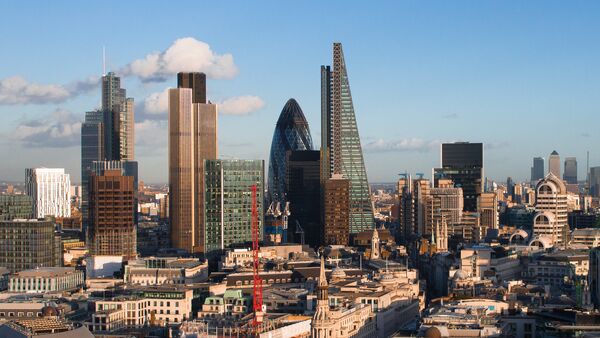Roberto Saviano, the anti-mafia campaigner who has been under police protection since exposing the activities of Naples crime syndicate the Camorra told a meeting in the UK House of Commons:
"If we were to ask which country is the most corrupt in the world, the first answer to come to mind would be dictated by the perceived level of corruption. Perhaps one might think of Mexico, of South American countries, of African countries, of the Middle East or Italy. But the most corrupt is the UK."
Rachel Davies, Head of UK Advocacy and Research at Transparency International UK told Sputnik:
"It's absolutely true that the UK is one of the leading financial centers for the laundering of corrupt money from overseas, whether through the property market, luxury goods or other sectors."
In May, UK Prime Minister David Cameron hosted a global anti-corruption summit in London, during which he said:
"What we're doing to expose corruption, where the absolute key is having greater transparency and you can see countries committee to exchanging more tax information, ownership information and — in the case of the United Kingdom and others — for the first time having not just a beneficial ownership register — who owns what — but also making that public so that it can be investigated by others."
Tax Havens
However, critics have said that although the UK itself may be cracking down on corruption, many of the Crown dependencies of the United Kingdom — such as Jersey, Guernsey, the Isle of Man and British Overseas Territories, including Bermuda, the Cayman Islands, the Turks and Caicos Islands, the British Virgin Islands and Gibraltar — remain secretive about the tax affairs of companies registered in their territories.
9% ^ in LDN properties owned offshore since our research last year! UK has long way to go to end role as safe haven https://t.co/rN9mVKpYe2
— Transparency Int'lUK (@TransparencyUK) 27 May 2016
Rachel Davies told Sputnik:
"There were a few areas to which the summit didn't extend — such as a commitment to extend transparency to the UK's Overseas Territories and Crown Dependencies through the adoption of central, public registers of the true owners of companies. Furthermore, the UK needs to address domestic corruption risks in UK political institutions and local government, and ensure that law enforcement is adequately resourced to act on illicit flows and cases of British companies bribing overseas. The rhetoric has been promising, but now the words need to translate into strong action."



